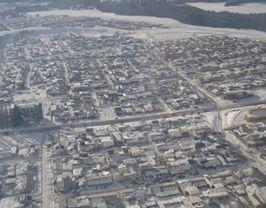
One of the worst polar fronts to hit Chile for some time is predicted to intensify in the run-up to August, as experts suggest the inclement weather could cause worse economic losses than the 2007 frosts.
Already, temperatures in more than 17 areas of the country have reached sub-zero levels, affecting avocado and citrus crops in particular, and potentially kiwifruit also (especially young trees), according to a new report from SimFRUIT, the Chilean fruit industry’s market intelligence service.
No further frosts are forecast for the rest of this week, SimFRUIT said, but rainfall is predicted across virtually all fruit-growing areas (except the Atacama region). The rains are not expected to cause a major impact.
However, new frosts are likely to occur in the coming weeks, according to sources at the Chilean Meteorological Service (DMC).
“Although it’s not expected that there will have been very serious damage in July, it’s likely that we will face a rather complex August with some frosts occurring throughout the month,” explained Fernando Santibanez, an agronomist from the University of Chile and an expert on bioclimatology.
Mr Santibanez advised Chile’s fruit sector to be prepared since it is possible the August frosts could be more damaging and affect fruit trees which bloom early, such as plums.
The expert added that the ideal situation would be for those producers who have control systems, such as wind towers or spray irrigation systems, to complement their equipment with heat generation burners to efficiently deal with the frosts.
“If there are no frost control systems, it’s recommendable to keep the soil as moist and clear as possible, and although not plowed still as compact as possible – this is the best way to defend plants against frost,” Mr Santibanez said.
Reports from some citrus-producing areas (where harvesting has still not started) have indicated that so far there are no major problems in terms of new buds like after the 2007 frosts, according to SimFRUIT.
In the case of avocados, meanwhile, some damage is predicted but evaluations are still ongoing, with an initial prognosis expected at the middle of next week.
Mr Santibanez said although this type of weather is infrequent during the Chilean winter, it is not totally abnormal.
“It’s much like what happened in July 2007 when we also had very strong frosts,” he explained.
“What is interesting is that is has repeated in such a short time and has been much more widespread in terms of geographic coverage. And in just three years we can expect another another polar front.”
Edmundo Araya, director of the Fruit Development Foundation (FDF), agreed that the low temperatures this winter have been “more frequent and consecutive”, but with slightly higher temperatures and less duration each day.
Temperatures reached a record low of -7.7 oC on Tuesday (20 July), SimFRUIT said.






No comments yet